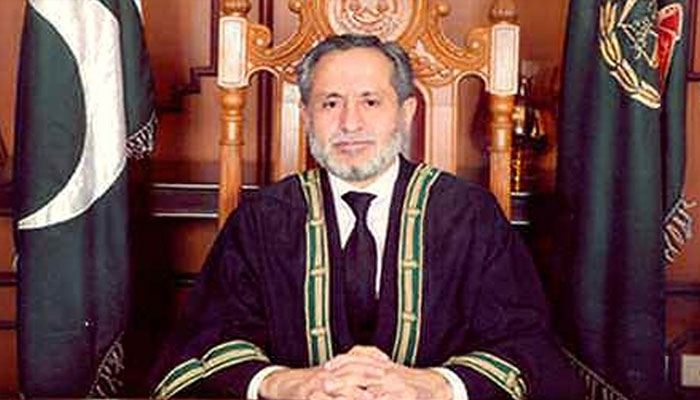Sunni Ittehad Council Not Entitled to Reserved Seats, Says Supreme Court Judge
SIC De-Notified Without Notice, Court Stresses Legal Process
ISLAMABAD — Justice Jamal Khan Mandokhail of the Supreme Court of Pakistan has remarked that the Sunni Ittehad Council (SIC) is not entitled to reserved seats, stating that the current issue would not have arisen if independent candidates had remained with Pakistan Tehreek-e-Insaf (PTI) instead of joining SIC.
A five-member constitutional bench, headed by Justice Amin-ud-Din Khan, conducted a live hearing on the review petitions related to the allocation of reserved seats.
During the proceedings, Justice Musarrat Hilali questioned the legitimacy of SIC’s claim to reserved seats, asking, “How can a party that did not contest elections be awarded reserved seats?” She emphasized that while independents can join a parliamentary party that is already part of the assembly, they cannot join a party that did not participate in the elections.
Representing SIC, senior lawyer Makhdoom Ali Khan argued that independent candidates had joined the Sunni Ittehad Council after the elections. However, in response to a question from the bench, he acknowledged that SIC itself did not contest the general elections, and its chairman ran as an independent.
Justice Mandokhail noted that while SIC could potentially form a parliamentary group, it had no legal claim to reserved seats. “If independent candidates had remained with PTI or if SIC had contested under its own electoral symbol, this issue wouldn’t have emerged,” he said.
Makhdoom Ali Khan further argued that SIC’s appeal had already been unanimously dismissed and its members de-notified from the reserved seats without being given notice. Justice Muhammad Ali Mazhar responded by highlighting that the court had nullified the Election Commission’s notification, and if any party was aggrieved, due legal process should have been followed.
Justice Mandokhail also questioned the applicability of Article 225 of the Constitution in this case, while Justice Mazhar reiterated that reserved seats are allocated based on proportional representation, and candidate lists are submitted before the elections.
He further clarified, “The absence of an electoral symbol does not dissolve a political party. Candidates, not parties, contest elections — the symbol is meant to guide voters, not to define a party’s existence.”
Read more: Supreme Court Narrows Scope of Review Petitions in Landmark Decision
The hearing concluded with the bench adjourning proceedings until the next day. The outcome of this review will significantly impact the distribution of reserved seats and the broader debate on electoral fairness and party representation in the parliament.




Comments are closed, but trackbacks and pingbacks are open.